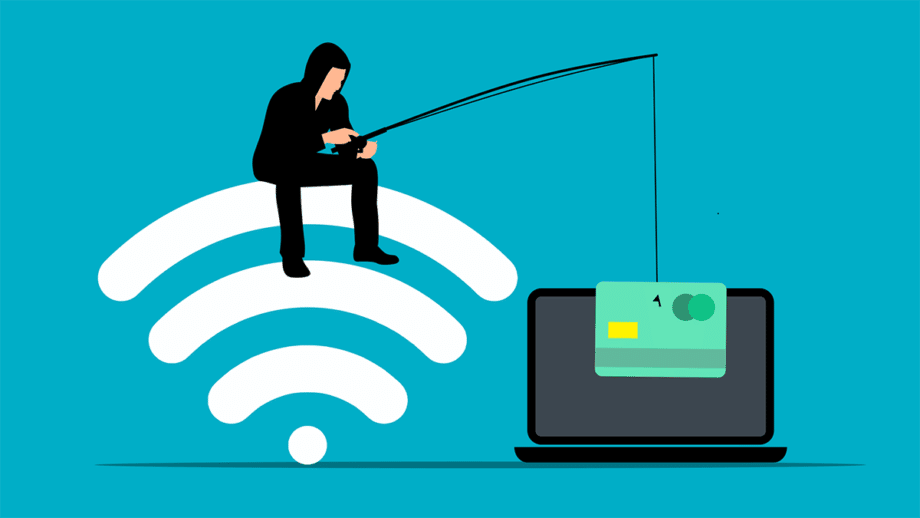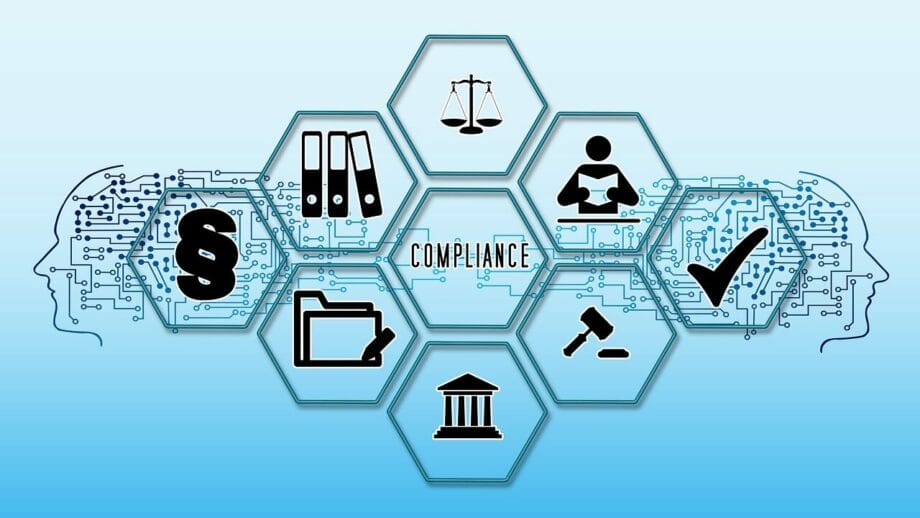The popularity of online shopping is exploding, but the boom brings its share of security threats to your eCommerce business. Were you aware that a cyber attack takes place after every 39 seconds? This article explains the different types of security threats and how they can impact your online shop.
Prepare to make your eCommerce site impervious to hackers by learning our best practices of cybersecurity!
Potential eCommerce Security Threats
For instance, an eCommerce business is exposed to diverse security threats such as financial-based fraud that comprises individuals who dishonestly intend to defraud money from the business. Some of the other risks involve activities in which cyber criminals present themselves as reliable organizations and obtain confidential information known as phishing.
There are also other types of malicious software such as malware and ransomware that hackers use to interfere with its operations or take control until a certain amount is paid. Your website database can be manipulated by SQL injections, where sensitive information may get revealed while on cross-site scripting attacks (XSS) the attacker injects malicious scripts in web pages viewed by users.
The DDoS attacks overwhelm servers, which leads to service interruption for legitimate customers. Through brute force attacks, hackers attempt a range of passwords until they find one that allows them to gain access.
E-skimming is a form of theft where credit card data are harvested during online transactions, while social engineering involves fooling the public into providing secretive information.
Related: 6 Best Strategies to Boost Your eCommerce Sales.
1. Financial Fraud
Fraudsters are always clever in how they would steal cash from the enterprises and their clients. They can use financial fraud techniques (for example, payment fraud) when they are conducting online transactions to access vital information e. g., credit card data.
E-skimming is common among hackers who remove valuable client data from eCommerce platforms leaving the business with significant losses. For this reason, businesses have to ensure that they protect themselves from such cyber criminals who thrive on blackmail.

2. Phishing
Phishing poses a serious threat to eCommerce security. For instance, in this delusive tactic, the vulnerability that waits to be exploited is when attackers deceitfully pose as trusted elements and trick targets into divulging valuable information such as login credentials or even credit card information.
The phishing attacks often appear real mimicking familiar addresses or phone numbers hence making their targets assume they are legitimate.
Phishing scams can cause massive negative impacts on an online store that becomes its victim. The implications are serious since they not only involve finances but also tarnish the reputation and customer confidence of your eCommerce business; key ingredients to prosperity in online operations.
In the case of incoming messages from unknown sources, they should be verified to avoid phishing scams and educate employees to stay informed about some signs of deception in communication to reduce possible chances before victims fall into the tricks.
3. Malware
Your eCommerce business’s systems face a critical threat from malware that can enter into the system and cause irreversible damage. This malicious software is increasingly popular with hackers who want to bypass security parameters and access customer or business information.
You need to protect your online store by applying high-tech security measures to virus infections, utilizing secure eCommerce platforms, updating the system periodically, enabling automatic backup for data, as well as keeping abreast of cyber regulations and threats.
In fact, once a malware attack is successful, your clients might lose money and confidence in the brand. As such, an active malware defense is essential to the operations of a thriving online business.
4. Ransomware
Ransomware is a real threat to eCommerce websites. They include malware, which enables the hackers to achieve unapproved access and causes high disruption and damage. Many a time, sensitive data is held at ransom until payment of the requested ransom, leading to loss of money for the targeted business entity.
Hackers find this cyber-attack method particularly popular given its profitability and simplicity of deployment against the weak. Online businesses need to protect themselves against ransomware in order to ensure business continuity and not compromise the trust customers have entrusted to them.
5. SQL Injections
Hackers also expose your eCommerce site to SQL Injections, which are one of the most common cyber-attacks that companies face. They exploit this method to invade your database servers and gain unauthorized access. From customer data to credit card numbers, anything stored in your database is at stake. Such attacks, not only expose sensitive information to a loss but ruin your business image and trust of the clientele.
Implement stringent website security measures such as input validation and parameterized queries to be able to guard against SQL Injections. In the process of coming up with a defense system ensure that your eCommerce platform caters to these threats. And, the safety of your online store can be hinged on preventing such frauds pre-emptively before hackers take their chance.

6. Cross-site Scripting (XSS)
One of the most common cyber threats to online businesses is Cross-site Scripting (XSS). It comes forth when a hacker is able to worm his or her code into the web pages of your eCommerce website. Your eCommerce store would be at risk of facing considerable security problems from this rogue injection.
XSS attacks on corporate websites can be costly if not fixed fast. Therefore, for instance, your eCommerce site must have robust security in place to avoid such attacks. Such may involve up-to-date system updates and good security practices that protect the systems from XSS threats. Admitting to XSS risks and preventive practices helps in preserving the authentic shopping atmosphere for the customers preventing any compromise of sensitive information.
7. DDoS attacks
A major risk of an eCommerce project is expensive distributed denial of service (DDoS) attacks. The hackers responsible for these cyber-attacks have usually taken control of many devices, which they use to generate a lot of traffic on your website. Such data overflow can block your site and make it inaccessible to the rightful users and prospective customers.
What is scary about these attacks, however, is the amount of force and volume they employ – brute-forcing tactics that could bring even properly provisioned systems to their knees. In this light, proactive security measures will ensure that such attacks have little or no effect on your online business operations.
8. Brute Force Attacks
Your eCommerce business is in great jeopardy from brute force attacks. The cybercriminals employ the enumeration technique where they basically try to guess your admin panel’s login password so as to penetrate and proceed with their fraudulent purchases.
These hackers are supported by heavy-duty programs that try many logins simultaneously and may even overshadow the security details of your online store. Use strong password policies and multi-factor authentication, those are the key tactics that will continue to frustrate brute force attacks. You can also detect possible brute force attack patterns and potential security breaches quickly through monitoring activity. Maintain a regiment of regular updating of software systems as this goes a long way in safeguarding such cyber threats.
9. Social Engineering
A serious threat to eCommerce security is social engineering. Using the art of sophisticated psychological manipulation techniques fraudsters are adept at misleading online store customers into disclosing sensitive information or making mistakes in security.
They can pose as trusted parties and form convincing messages in order to trick users into exposing sensitive data such as passwords or credit card data. You need to be constantly on guard and keep updating your protection systems as well as educating customers against the same deceitful cyber attack.
You can also invest in the latest anti-phishing tools that will assist in safeguarding your online business from social engineering attacks hence strengthening the reputation of your eCommerce site.
10. E-Skimming
E-skimming is an emerging menace in the eCommerce business where hackers take advantage of website weaknesses. Such activities comprise inserting harmful codes in the firm’s payment information system. This is highly alarming about e-skimming as the main objective of this cybercrime is to replace sensitive data during transactions such as customer’s credit card details.
One common misconception about e-skimming attacks is that only big businesses are targeted, but the reality is far from it. Any online store can be attacked insidiously, regardless of size and sector. At this point, robust eCommerce security measures become paramount not only to protect your brand reputation but most importantly customer trust and their financial data. Better security protocols will scare away the hackers safeguarding your e-commerce store against possible e-skimming attacks offenses.
See also: 8 Things You Need to Know Before Starting an eCommerce Business.
Importance of eCommerce Security and PCI Compliance

Compliance with PCI requirements and ensuring eCommerce security are paramount for protecting customer information, maintaining user trust and credibility, as well as avoiding expensive data breaches or possible fines. Read further in the sections below to learn more about these important elements for running a successful online business.
Protecting Customer Information
One of the important facets of eCommerce security is the secure handling of customer data. Adherence to PCI-DSS protects credit card data wherever it is in the database or in the transaction process.
They should invest in encryption methods and just collect necessary client data without storing credit card numbers that are sensitive. Use HTTPS to secure your website as it is highly reliable and assures the privacy and integrity of data transmitted between your web server and customers’ browsers.
Giving emphasis to these measures creates safer online shopping experiences and builds trust amongst digital customers.
Maintaining Trust and Credibility
The first stage of building trust and instilling confidence in your customers in eCommerce business is establishing some security measures. No one would want to purchase from a site – they have fears of their personal information suffering privacy.
Approaches to instill confidence in a user base include maintaining viable password-protected regulations, availing reliable payment alternatives, and subjecting the website to clear security indications. Staying PCI compliant helps to avoid probable fines and therefore gives your customers the assurance that you take data protection seriously.
Such trust signals inform your shoppers that their credit card numbers and other sensitive details are safe with you thereby creating a feeling of being dependable that can convert first-time clients into lifelong customers.
Avoiding Data Breaches and Fines
Keeping security strong in your eCommerce store is one more way you will avoid a data breach. Failure to comply with such rules as the General Data Protection Regulation (GDPR) can lead to heavy fines and penalties for these privacy invasions.
A secure eCommerce site safeguards your business from financial loss and also the integrity of customers’ personal information. Following best practices in data security helps to reduce possible threats considerably. Such strategies may include ensuring there is a trusted SSL certificate or an up-to-date system that outsmarts the malicious efforts of cybercriminals trying to have unauthorized access.
First and foremost, you should always aim at building trust with your customers which is in line with sturdy security protocols.
Best Practices to Secure Your eCommerce Website

To have the best security for your eCommerce website, you should first select a trusted and secure platform. Use SSL certificates to create secure connections between the web server and browser, protecting all transferred information. Find a secure hosting company with an excellent record. Ensure they employ effective authentication protocols and access controls to reduce the entry of unauthorized persons. You can also establish automated data backups to further caution yourself from information loss or breaches.
Protect the financial information of customers when they are making their payment by using safe payment gateways. Ensure the information collected about the customer has adhered to an ethical code of conduct without undermining their privacy. Always update your system software and plugins to address the vulnerabilities which can be exploited by hackers. Lastly, onboard your customers and employees to draw insights on the online security threats and cyber laws they should keep in mind as far as their e-commerce matters are concerned.
1. Choose a Secure eCommerce Platform
An important step towards safeguarding your online store is to use a secure eCommerce platform. Such platforms are integrated with security features that protect them from possible risks of financial fraud and cybercrime. These platforms have to comply with the PCI standards that cater to customer data security while transacting. This facilitates regular audits and penetration tests that successfully uncover vulnerabilities before hackers.
Moreover, they provide CAPTCHA and hosted payment forms against fraud. Choose a new version of the platform to be kept updated on all identified security issues from previous ones, as instead, it provides a safer environment for your e-commerce business.
Related: How to Set Up Social Media Profiles for an eCommerce Startup?
2. Implement SSL Certificates
Implementing SSL certificates is the first step toward securing your eCommerce website. SSL means Secure Sockets Layer – it is a technology that encrypts your customers’ data, such as payment details or credit card numbers, during transmission between their browser and your website, making it harder for hackers to get hold of sensitive information. This not only enhances security on your site but also nurtures the essential trust between customers.
Choosing which SSL certificate to purchase can greatly enhance security measures and build trust with customers. Any serious online shopping entity needs SSL certification to bar any attacks from reaching the shopper’s data.
3. Use a Secure Hosting Provider
A secured hosting service reduces threats from the eCommerce website. This ensures that your data is secure and safe from hackers through key features such as SSL certificates, DDoS protection, and automatic backups provided by the hosting providers. What’s more, they perform regular checks for any unusual actions and inform you immediately of possible security attacks.
It is crucial that you go for a reliable hosting provider in order to have your online shop operate smoothly. This step not only enhances the safety of the sensitive data of a customer but also gives more confidence to the customers in their data.
A reliable hosting service will keep your site running efficiently by attending to all technicalities, thereby allowing you to concentrate on the growth of your business. Choosing a secure host is very critical as this forms the building block of the security framework in your eCommerce platform.

4. Have Strong Authentication and Access Controls
The inclusion of robust authentication and access controls heightens security for your eCommerce site. The user has to prove their identity first before accessing any protected web feature, which prevents unauthorized people from entering the secured area of a given website.
Therefore, it’s important to have different strong passwords for each account. One of the ways forward is to ensure that two-factor authentication (2FA) is integrated, which involves an extra checkpoint that requires the user to provide a second piece of information he or she could only know.
Security measures are increased further by biometric scanners that identify fingerprint or facial features. Consider automatic timeouts for sessions, a powerful way of countering brute force attacks such as repeated login attempts.
5. Automate Data Backup
Using automated data backup can become the first wall of defense for your eCommerce enterprise. This requires creating and keeping replicated copies of the data at regular intervals to ensure that essential details are safe even in instances of website disturbances or violation.
To simplify this, many hosting providers have automatic backups as part of their service packages. Given the fact that it is versatile and has offsite storage, most businesses prefer to use cloud-based backups.
Automating data backup adds an extra layer of security against unforeseen incidences that might threaten the operation and safety of your online store. This practice is not just about securing sensitive information; it enhances the resilience and contingency planning of your eCommerce operations.
6. Use Secure Payment Gateways
The use of secure payment gateways is vital to protecting your eCommerce business. Choose a dependable gateway with strong fraud safety features in order to guarantee the authenticity of your customers’ financial transactions.
Incorporate HTTPS and SSL, necessary parts for raising the online payment protection. In addition, an additional protection layer can be provided by a trusted payment processor or platform against possible threats.
Also, be sure to choose gateways that are PCI-compliant as this is the most effective way to prevent data theft and fraud. This ensures that your customer’s sensitive data is always secured, and also protects you from any legal issues related to violating the cybersecurity laws.

7. Collect Customer Data Ethically
To sustain a secure eCommerce platform, one must limit the amount of customer data collection. Taking this vital step ensures that sensitive information is safe and minimizes the chances of unauthorized data breaches. Most importantly, avoid the storage of customer credit card details to reduce possible risks and keep your customers’ trust 100%.
With HTTPS over HTTP, all data provided is encrypted and forwarded to the consumers’ personal particulars which is a further protection initiative. Comply with PCI DSS standards that will help you protect the consumer data on your e-commerce website effectively. When such rules are strictly followed, it is a sign of your dedication to ethical data collection and knowledge. This ensures confidence with the privacy rights from repeating and possibly customers.
8. Regularly Update Your System
E-commerce businesses have to keep themselves updated with system updates. This helps your site always run on the latest software versions without known security vulnerabilities. Develop and enforce a strict regular updating routine no matter what it is – your operating system, content management system (CMS), or plugins to name just a few examples. All of these components are essential for protecting and keeping personal data safe from hacker attacks. Remember the mantra: a safer online business platform due to an updated system.
9. Educate Yourself, Customers, and Employees
Cybersecurity education is the most potent security in the digital marketplace. It’s not about you only, but also your customers and employees who have had an opportunity to interact with your eCommerce platform on a daily basis. It is important that they know their actions can contribute to a major threat to security. They can gain awareness regarding the current cyber eCommerce threats and actions that need to be used.
All employees handling customers’ sensitive data and financial transactions on your website require training for online safety courses. Give your customers resources or conduct webinars aimed at enlightening them on safe e-shopping.
It is important to note, as well, that companies should keep themselves in line with cyber laws; this helps organizations remain compliant and within the legal limits during controversies surrounding data breaches or hacking.
FAQs

1. What are eCommerce security best practices?
Security practices in eCommerce include compliance with payment card industry (PCI) data security standards, protection against cyber-attacks, ensuring search engine safety, and many more as already discussed above.
2. Why is it crucial for a business owner to understand the data security standard?
The data security benchmark enables a business owner to secure sensitive information and ensure that their e-commerce store is safe from possible online threats.
3. How does adherence to the PCI-DSS contribute to eCommerce safety?
Compliance with payment card industry data security standards (PCI-DSS) secures transactions from online sales by securing customer card information.
4. Can implementing search engine safety measures help in eCommerce protection?
Yes! Search engine safety measures ensure the safety of your online store and boost visibility plus credibility to customers.
See also: Cross-Border ECommerce Logistics: How To & Best Practices.
Conclusion

Take a proactive approach to securing your e-commerce site. You should focus on the best practices such as robust authentication, updating your software, and handling data efficiently.
Focus on cyber security to make your eCommerce a success story. Stay aware of new threats and secure your online store with the latest available defenses.





